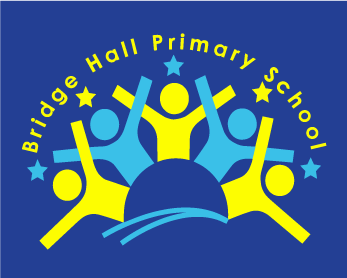Our Homework Policy
At Bridge Hall Primary School we appreciate the importance of establishing good links between home and school and understand that a child’s education does not cease when they leave the school premises. We also recognise the importance of establishing good homework habits from the beginning of a child’s school life.
“Homework” is any work or activity which is completed outside the school day either alone or with the support of a parent, carer or an older sibling. Research into homework has mainly been carried out in secondary schools, but the Sutton Trust 2013 indicated that although homework adds only one month’s progress, the involvement of parents in a child’s learning can add up to three months' progress. When reviewing the impact of homework, evidence from the EEF suggests that short-focussed tasks that link directly to current learning and ongoing retrieval of prior learning linked to gains in long-term memory are likely to be more effective than regular daily homework which lacks a specific purpose.
We see the purpose of homework as being:
- To practise and consolidate basic skills and knowledge, especially in English and maths.
- To extend and support learning.
- To provide opportunities for parents or carers and children to work collaboratively to enhance their children’s learning.
- To encourage children and their parents or carers to share and enjoy learning experiences.
- To prepare Year 6 children for the secondary phase of their education.
This homework policy is designed to:
- To ensure consistency of approach throughout the school.
- To ensure that parents and carers have a clear understanding of expectations of themselves and children
From the Early Years, reading, saying rhymes and playing simple games with parents have provided invaluable opportunities for the practice and reinforcement of basic skills in a supportive environment. As children get older, they need to develop the skills of regularly devoting short periods of time to personal study. All children are expected to take part in a variety of home learning tasks to enhance and support their work in class. At Bridge Hall Primary School, the main emphasis of homework involves the reinforcement of basic skills, knowledge and understanding. Other tasks may include research, practical activities or problem-solving. The nature, amount and type of homework will vary according to the age and ability of the children and will increase as the children move through school. It may be adjusted to meet individual needs.
Homework resources throughout school:
|
Year group |
Reading and phonics |
Other |
|
Nursery |
Sharing story books Play bags (book and resources) |
Posts on Tapestry rhyme with ideas |
|
Reception |
Phase 1 books Phonic photocopies |
Activities related to topic Eg collect things from an Autumn work |
|
Year One |
Phonic banded books then levelled reading books |
Homework books -10-minute maths weekly workouts And reading comprehension. |
|
Year Two |
Reading books |
|
|
Key Stage 2 |
Reading books go home every night |
Homework books (maths and grammar ,punctuation and spelling) 1 page from each weekly Usually related to what is done in class. |
How staff at Bridge Hall Primary will support this policy:
- Provide a range of homework activities and tasks.
- Ensure the children have a clear understanding of the tasks set.
- Communicate with parents or carers and keep them informed of progress.
How parents or carers can help to support their children:
- Provide a suitable place for children to complete activities and tasks.
- Provide support and encouragement when required.
- Support the school in explaining and valuing homework.
- Praise children when tasks are completed.
- Share any issues arising from homework.
Children are expected to:
- Make full use of any opportunities they are presented with.
- Tackle tasks with a positive attitude.
- Take pride in the content and presentation of tasks completed.
- Be organised to look after and return books and complete tasks on agreed dates
Other ways parents or carers can help with supporting a child’s learning:
- Visit the local library or park.
- Join clubs.
- Attend community events.
